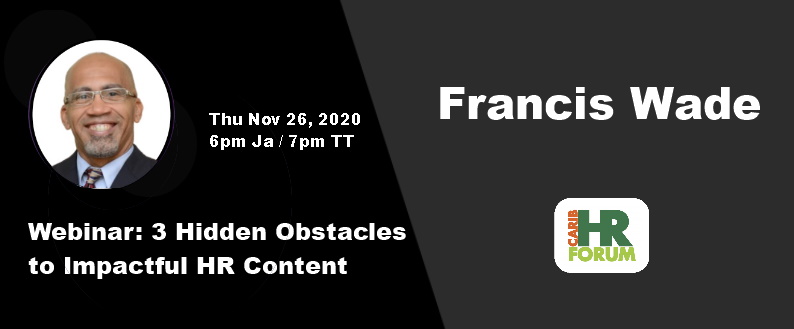
In an upcoming column just drafted for the Gleaner, I argue that executives lose employees’ followership because they lack advanced listening skills. What I didn’t mention is the role that Human Resource professionals should play in developing these rare skills.
Many executives believe that listening skills are picked up early in one’s career – a necessary stepping stone to the rungs of top leadership. For them, they consist of a few simple lessons and their successful rise to the top means that they have already been there, done that and checked off that particular box on their list of development goals.
However, Human Resource professionals know differently. For them, listening skills exist on a continuum from low to high. Furthermore, as an executive rises up the ladder, the need becomes acute. The stakes are higher and the demand for more sophisticated skills becomes evident. Few executives realize these facts and most HR professionals don’t tell them, resulting in a continuous, increasing flow of complaints. Here are some of the messages HR needs to share to prevent disaster.
Message #1. Why Followership is Lost
Executives are often at a loss when it becomes evident that people are no longer willing to follow their leadership. They have no idea what happened and start out blaming staff, or externals such as the recession or Jamaican culture. HR needs to provide concrete answers, which often have to do with a lack of listening.
In other words, executives sometimes stop paying attention to what people were saying… perhaps because they don’t notice what’s happening. HR professionals know that hard-earned trust is rarely lost in a single, dramatic incident, such as the shock news of Bill Clinton’s affair with Monica Lewinsky.
Instead, they should teach executives that the loss comes from small unproductive practices repeated over time. By the time an executive sees the result, their poor listening practices have produced the tangible, cumulative effect they now see.
Message #2. How It Can Be Regained
Even if there is a dramatic event, there is no way trust can be rebuilt without employees having an authentic experience of being heard. In Jamaican companies, this experience can’t be handled by sending people to HR to air their grouses. It must take place at the very top, directly with leaders.
A few years ago, I witnessed a CEO write and subsequently read a letter to every member of staff apologizing for abandoning his leadership role. He did so in four training events, several months after an anonymous employee went to the newspapers with an inside, false story accusing him of corruption.
You may think that the victory was secured in his writing and reading but you would be wrong. His trust was rebuilt in the minutes after he read the letter and asked his employees for open feedback. It was gut-wrenching and uncomfortable but at the end, their courage matched his. The company was eventually acquired by a much larger concern based on their strength of the turnaround that ensued.
Turnarounds like this just don’t happen by “buck-up.” HR must demand that the transformative power of advanced listening skills be employed to reach each member of staff.


